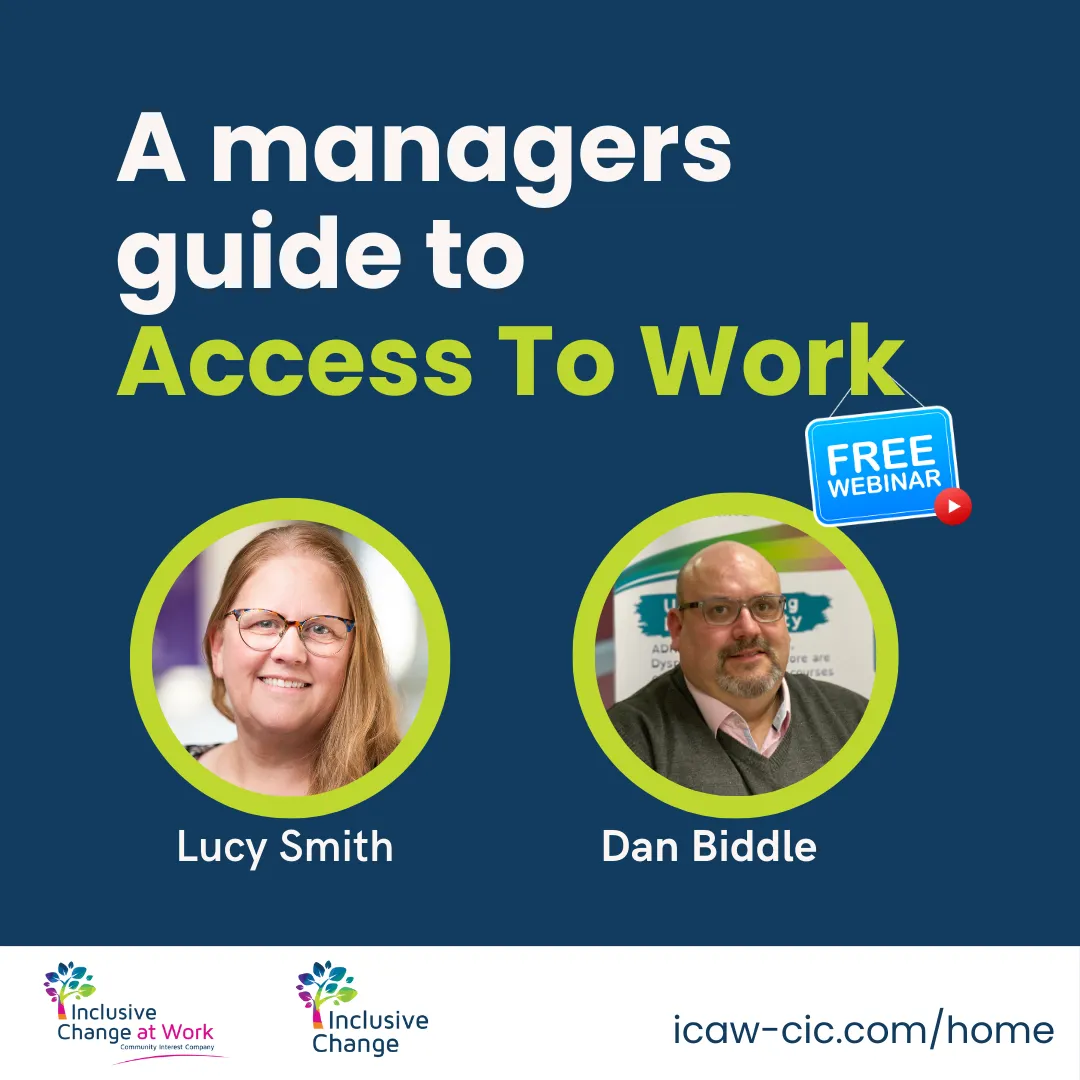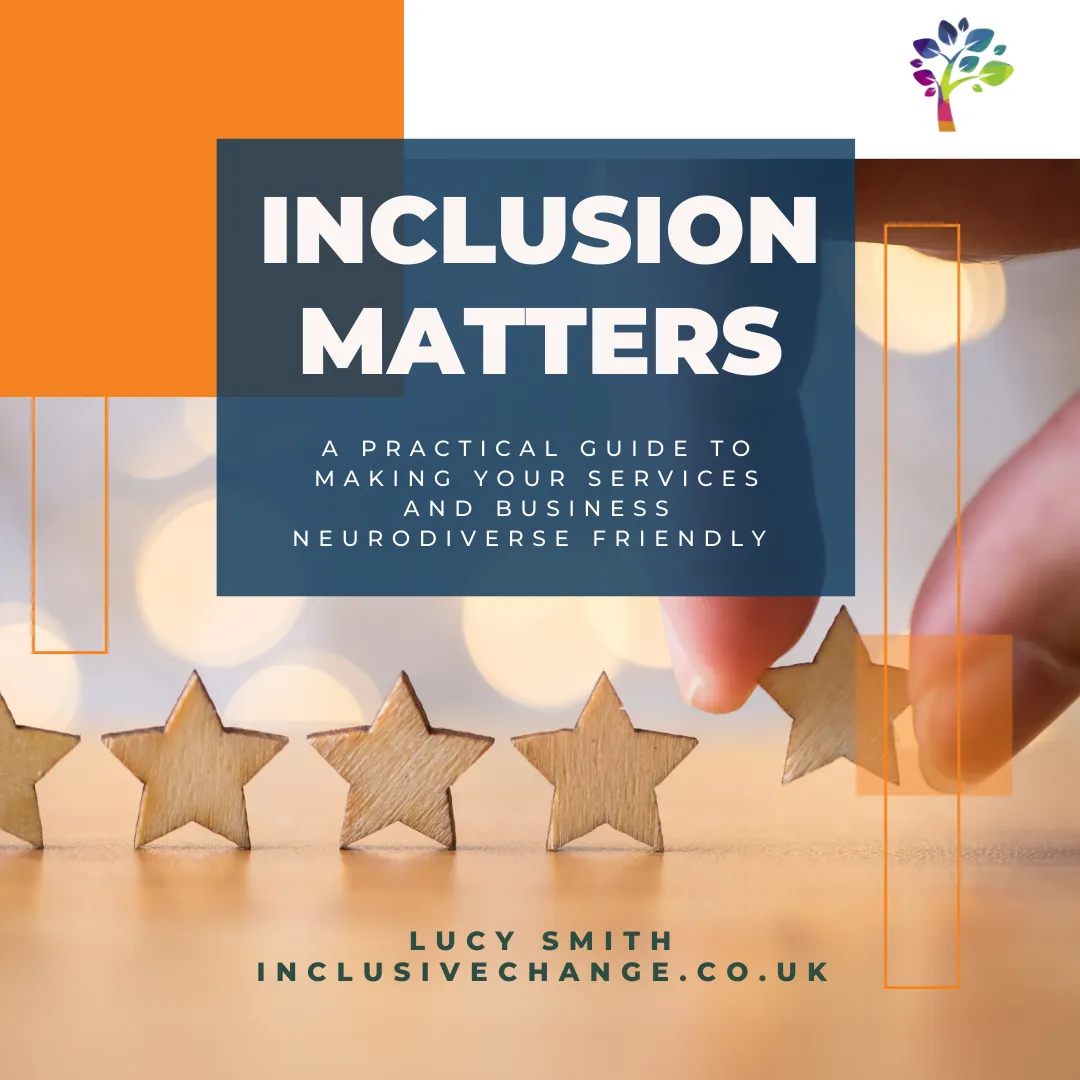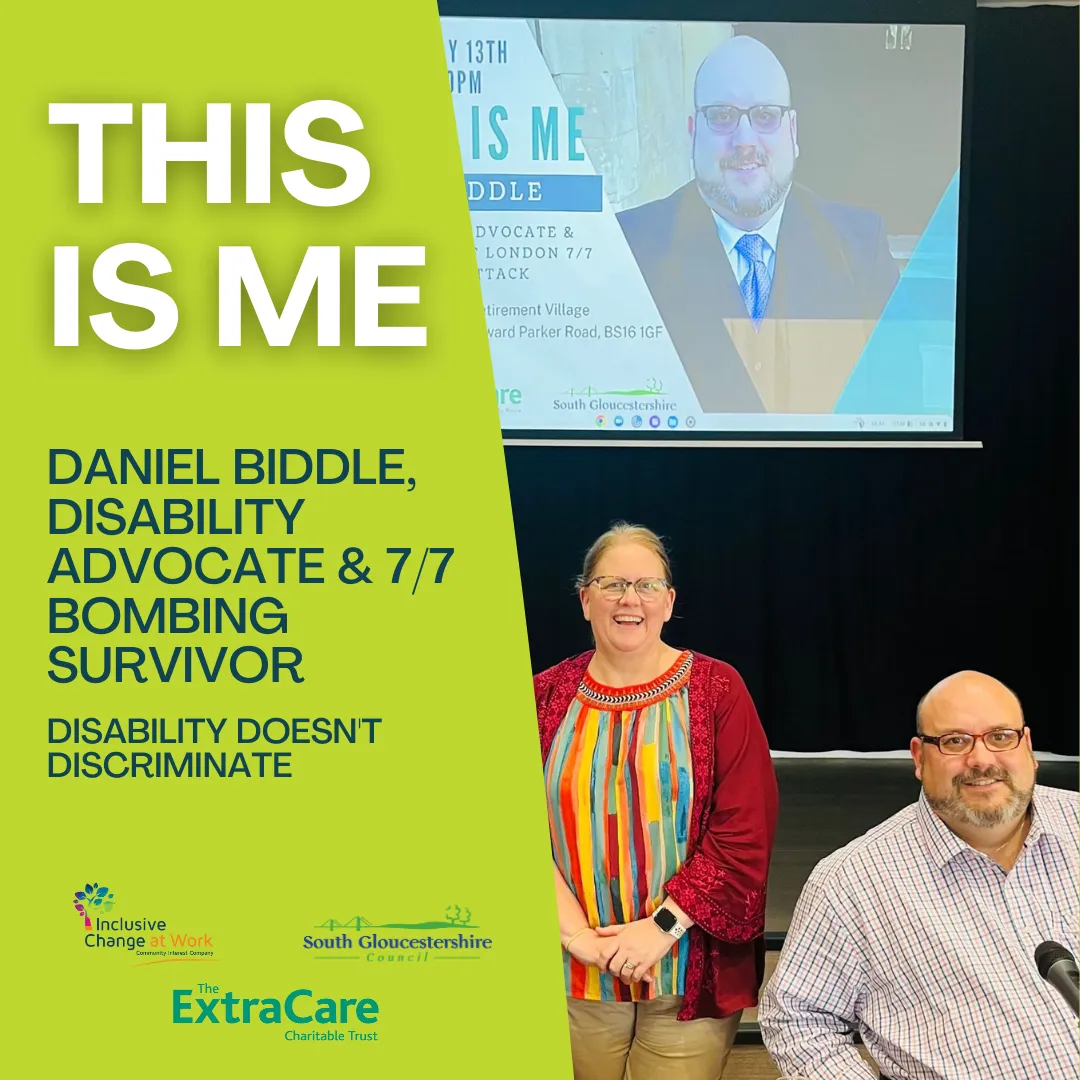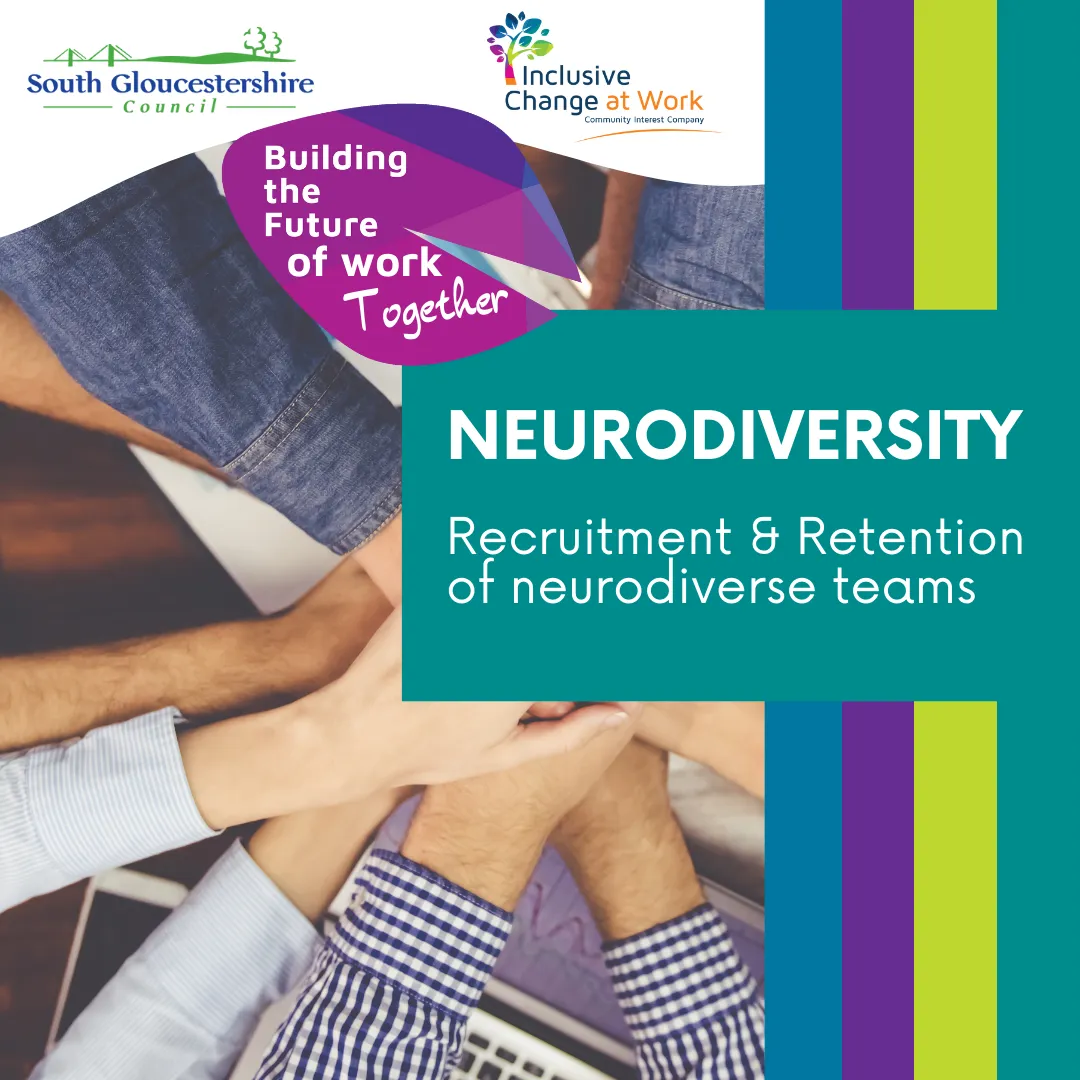Take a look at our
Upcoming Events
With Inclusive Change
We host events in our local community in partnership with Inclusive Change At Work CIC. Take a look at the list below to find out whats on.
Our online events are designed to inform and educate. We have a range of free and on demand events online.

Our team are experienced speakers and can be booked to educate and entertain at your next event - get in touch to find out how we can help.
Important Dates in our Calendar

Sept 2025
10th - South Glos. EDI Conference, The Growth Hub, Oxstalls Campus
24th - Start the Conversation - FREE Webinar, Online
Oct 2025
23rd - F'Up Night Exeter, The Bootlegger, 6-9pm
29th - Free, In-Person Tekmatix Workshop, Bristol

FREE In-Person Tekmatix Workshop
How to Scale Your Business With Tech, Automation & AI
WHEN: 29th October 9am - 3pm
WHERE: St Michael's Centre, North Road, Stoke Gifford, Bristol, BS34 8PD
Join Tekmatix in Bristol for a free, hands-on workshop with Sarah Cordiner. Discover how to use AI, tech and automation to grow your business smarter - not harder, with practical tools and strategies you can apply straight away.
This workshop is suitable for everyone - from established to just-starting-out businesses. Not very 'tech savvy'? That's ok, you will be after attending!
We are big fans of Tekmatix as we use it for just about everything, and so are thrilled this event is happening right on our doorstep!
Reserve your FREE spot following the link below.
Re-Visit our Past Events
BSides Bristol - 5th & 6th September
Red Flags or Reasonable Requests? Inclusive Risk Management in Cyber Teams
Lucy Smith joined day one of BSides Bristol as she explored the future of work – spotting red flags, recognising reasonable requests, and reframing adjustments as smart strategies for building high-performing, future-ready cyber teams.
Click on the button below to access Lucy's top ten tips for inclusive recruitment.

Inclusive Change at Work
In the community
From January to March 2025, our sister community interest company, Inclusive Change at Work CIC, hosted transformative workshops to promote understanding and inclusion for neurodivergent individuals and their families.
We gathered at Emersons Green Village Hall for expert-led sessions that offered practical strategies and a welcoming space for learning and growth.
Visit our recap page for more information about the sessions plus useful links and articles.

Building the Future
Of Work, Together
During 2024, and the start of 2025, we hosted live webinars and in-person workshops dedicated to supporting neurodiverse and disabled young people in the workplace.
Some sessions guided businesses on the value of workplace diversity and inclusion, highlighting how neurodivergent talent strengthens teams and fosters innovation.
The other sessions, designed for parents and carers of neurodivese young adults, provided insights into workplace opportunities and support for thier young people, inspiring hope for their future careers. Attendees had the opportunity to learn, connect, and contribute to more inclusive work environments.
Take a look at our recap pages, you can watch the recordings and you will find a host of information, articles and freebies too!
Our Event Blog - Where we've been, what we've learned
Sharing our experiences, insights, and standout moments from industry events
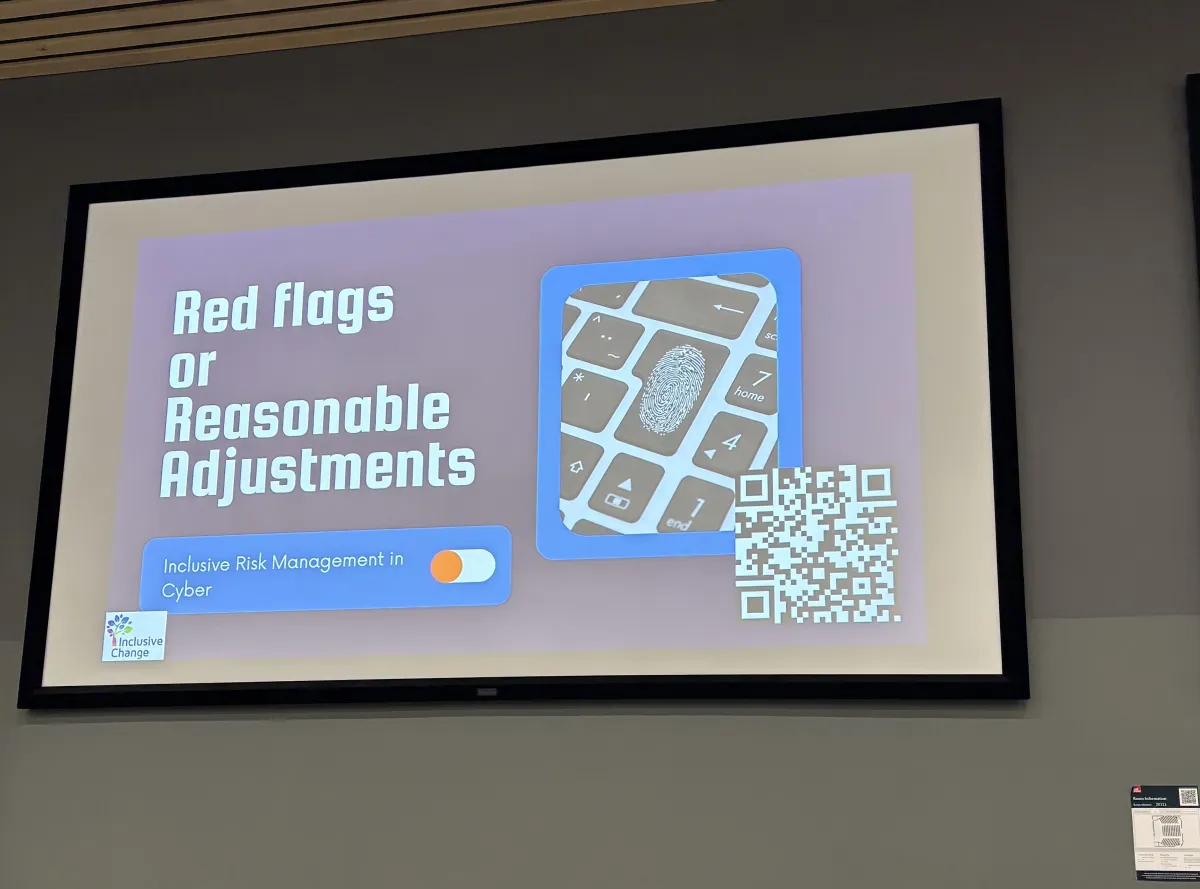
Red Flags or Reasonable Adjustments
Red Flags or Reasonable Adjustments: A Practical Approach to Inclusive Risk Management in Cyber
I gave a new talk at BSides Bristol in September 2025 on this exact topic and I wanted to share a bit more widely. The points in this post could be relevant to any role or team working in any high stakes environments - law enforcement, security or intelligence operations.
If you work in cyber, you already know the pressure points: alert noise, time-critical change windows, shifting vendor landscapes, and the expectation to “get it right” first time. Add a tight labour market and rising stress and it’s clear - human performance is now a core security concern, not a soft topic.
This post is about making that practical. I’m arguing that what HR calls reasonable adjustments are, in cyber terms, risk controls for people. They are small, proportionate changes to process, environment, tooling, or timing that reduce error, improve resilience, and help us keep great people.
Why this matters now
Capacity and continuity: Teams are lean. When we lose people—or when talented colleagues are operating at the edge of burnout—risk increases.
High-stakes work: Patching, identity changes, incident response and supplier hand-offs are all human-intensive. Mistakes here are costly.
Expectations of newer generations: Many early-career professionals look for psychological safety, flexibility, and clear communication. If they can’t see it, they don’t stay.
This isn’t about lowering standards. It’s about removing avoidable friction so people can meet those standards consistently.
From “reasonable adjustments” to risk controls for people
In UK law, employers have a duty to make reasonable adjustments for disabled staff where a policy, practice, physical feature, or need for an auxiliary aid causes substantial disadvantage. In a security context, translate that into: set up the work so capable professionals aren’t fighting unnecessary barriers - especially when they’re autistic, ADHD, dyslexic, or simply operating under sustained load.
Examples that reduce risk immediately:
Written instructions and decisions: Verbal-only handovers are fragile. Capture actions, owners and deadlines in writing.
Protected focus blocks for high-risk changes: During patching or privileged identity work, minimise interruptions and multitasking.
Clear, short meetings with agendas in advance: One topic, time-boxed, decisions documented.
Shared task boards (Jira/Trello/Notion): Visible work, fewer dropped tasks, easier handovers.
Noise control / quiet zones; headphones allowed: Better signal detection, lower cognitive load in the SOC.
Fixed desk on request: Predictability reduces setup friction and sensory stress.
Short, regular breaks: Attention resets reduce error and rework.
Weekly 1:1 priority check-ins: Align expectations; remove blockers early.
These are not “extras”. They are small controls that improve accuracy and throughput.
How behaviours are misread - and what to do instead
Autistic and ADHD colleagues are already in our teams. The issue is not capability; it’s fit between the person and the way we’ve designed the work. Behaviours that are often misread as “red flags” are frequently signals to adjust the system.
Common misreads and simple responses
Direct or brief communication → “rude”.
Response: Agree tone/format guidelines; encourage bullet points. Clarity is the goal.Camera off or limited eye contact → “disengaged”.
Response: Normalise camera-optional calls; ask for a short written update afterwards.Requests for written instructions → “slow learner”.
Response: Treat written decisions as standard in change and incident work.Struggle with interruptions/time blindness (ADHD) → “unreliable”.
Response: Use checklists, do-not-disturb change windows, micro-steps and visible rotas.Hyperfocus or many ideas, weaker follow-through (ADHD) → “impulsive/flaky”.
Response: Limit work-in-progress; use a “pause & peer-check” before risky actions; capture ideas in a parking lot.
When we respond to the signal rather than judging the person, we get fewer mistakes and more consistent delivery.
A practical strategy for managers
1) Recognise, don’t rationalise
If a colleague is struggling with priorities, focus, or environment, pause before assuming intent. Ask yourself: What barrier might be at play?
2) Ask, don’t assume
Use straightforward questions:
“What helps you do your best work on this?”
“Is there anything about the setup, timing, or format that’s getting in the way?”
3) Adjust, don’t excuse
Agree one or two proportionate changes. Keep standards the same; change the path to reach them. Trial, review, iterate.
4) Lead, don’t wait
Make good practice universal: written decisions, checklists for high-risk work, short meetings with agendas, and protected focus time. Don’t rely on perfect disclosure to justify sensible controls.
Here is a pathway you can use: Identify barrier → Trial adjustment(s) → Review impact → Document → If performance is still below standard, proceed through a fair capability route. This protects both the person and the business.
Want some quick implementation tips for cyber teams
Change windows: Can you protect 45–60 minutes; no interruptions; use a pre-commit checklist; require a peer-check on privileged actions.
Meetings: Have one topic, send an agenda in advance, decisions captured and shared. Keep them short by default.
SOC hygiene: Allow headphones/quiet space; one channel per incident thread; rotate alert monitoring; use checklists consistently.
Help desk / IAM: Create Verification scripts; embed “two-minute pause” rule before high-risk changes; insist on written confirmation of requests.
Neuro-inclusive practice is not a side project or a branding exercise. It’s a practical way to reduce error, shorten incidents, retain talent, and lower cost. Call them reasonable adjustments if you’re talking to HR. When you’re with your cyber team, call them what they are: risk controls for people.
We don’t need to lower the bar on performance. We need to remove the avoidable barriers that stop capable people from reaching it, especially when the stakes are high.
If you want practical, low-cost ways to reduce human error and retain brilliant people, let’s chat.
Lucy Smith is an expert in organisational change and neurodiversity, working with cyber leaders to turn inclusion into risk controls for people.
Visit our website to see how we support teams, run workshops, and build manager toolkits.
Free Resources - Short Courses & Webinars
Want easy access to all of our free resources? Click on the link below to register and you will get access to all of our free stuff in one place.
We are always adding and updating the list and will notify you when we drop new content.
Inclusive Change Ltd
The Brightwell, Bradbury House
Wheatfield Drive
Bradley Stoke, Bristol
BS329DB
Copyright 2025 - Inclusive Change Ltd
Companies House: 12412464
VAT NO: 352 1564 17
ICO Reg: ZB081779
UK Register of Learning Providers: 10090652
Reg no: 12412464






